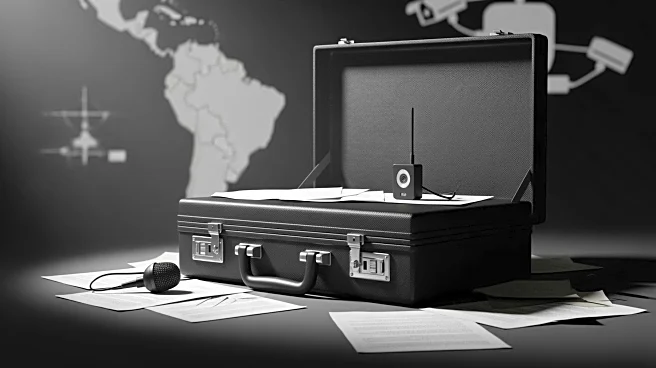What's Happening?
A U.S. federal agent attempted to bribe Venezuelan President Nicolás Maduro’s chief pilot to divert the leader’s plane for capture in a covert operation spanning 16 months. This effort was part of a broader
campaign by the United States to remove Maduro from power, which ultimately failed, leaving Maduro in control of Venezuela. The agent, identified as Edwin Lopez, met secretly with Maduro’s chief pilot, General Bitner Villegas, offering him a fortune to divert the plane. Despite the pilot's cautious response, Lopez continued communication via encrypted messaging, demonstrating the persistent nature of the effort. The operation highlights the U.S.'s strategy of combining clandestine operations with military power to destabilize the regime.
Why It's Important?
The failed operation underscores the U.S.'s ongoing efforts to exert pressure on Maduro, whom Washington accuses of drug trafficking. The deployment of warships, attack aircraft, and intelligence assets to the Caribbean signals readiness for more aggressive action. This illustrates how Washington pairs covert operations with military power to destabilize the regime while projecting strategic pressure in the region. The escalation of military pressure, alongside diplomatic and covert efforts, could potentially lead to broader conflict, affecting regional stability and U.S.-Venezuela relations.
What's Next?
Although the plot to flip Maduro’s pilot failed, it highlights the potential for Washington’s campaign to evolve into a broader conflict. With U.S. warships and aircraft already deployed near Venezuelan waters and covert operations continuing behind the scenes, any miscalculation could ignite a confrontation with regional or global repercussions.









